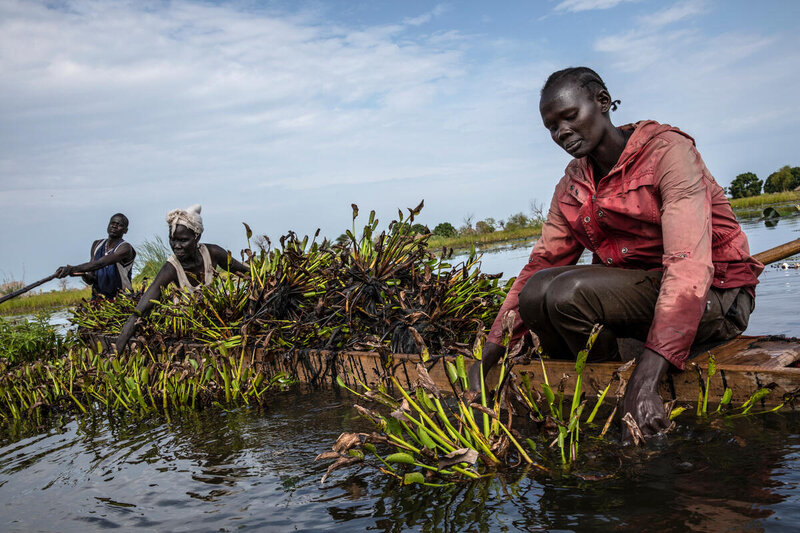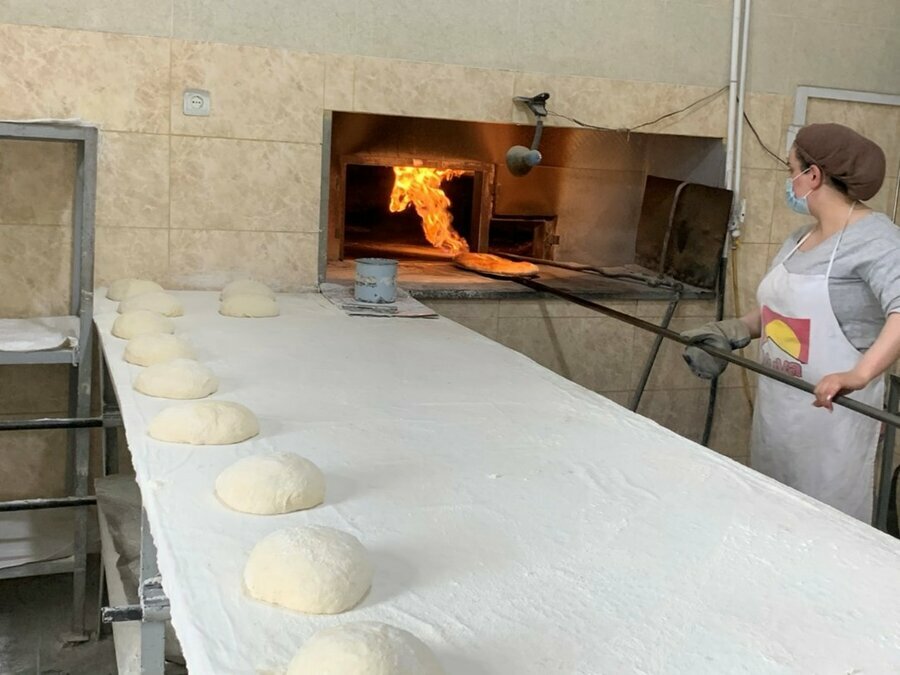Clean Air Day: How WFP delivers with stoves and sun
As the world marks the International Day of Clean Air for blue skies, the current global energy crisis is another wakeup call for clean and durable energy solutions that are also key to building food security.

That message is all the more powerful today, as the war in Ukraine sends food and fuel prices soaring and contributes to an unprecedented rise in global hunger.
That's why over the past two decades the World Food Programme (WFP) has worked with partners to meet the energy needs of over 10 million people in 48 countries in ways that build both environmental and food security.
“Clean energy is a fundamental enabler to achieving food security,” says WFP energy expert Raffaella Bellanca. “It improves economic development, public health and gender equality, and reduces pollution and environmental degradation, whilst also tackling climate change.”
More than clean stoves
In many poor countries, people cook their food with firewood and charcoal — polluting energy sources that increase deforestation, greenhouse gas emissions and health risks for those inhaling their fumes.
WFP is helping to fight these multiple scourges through fuel-efficient stoves. In 2021 alone, we provided more than 170,000 such cookers to families and schools in 18 countries, including Niger, Malawi, Sudan, Myanmar and Haiti. In some cases, people buy the cookstoves with funds they received from WFP’s cash-based assistance.
“These stoves are either designed to reduce the amount of firewood needed by being well insulated or they use different fuels altogether such as electricity,” WFP’s Bellanca says.
The stoves also have other benefits; for example, reducing risks women face when collecting firewood in dangerous or remote places and by offering parents an indirect incentive to educate their children.
“In schools for example, families are often required to contribute fuels to cook meals,” Bellanca says. “Using fuel-efficient stoves reduces this burden.”

Beyond providing the stoves, WFP teaches people how to prepare nutritious meals with them using locally produced food. And we work with area suppliers to support local energy markets.
“Addressing all aspects of sustainable energy in this way is crucial in boosting resilience and changing lives,” Bellanca says.
Solar solutions
WFP has also launched solar energy initiatives supporting communities across the countries where we operate.
“WFP helps schools and families access renewable energy from solar-powered systems. These can power electric cookers, fuel fridges or pump water, for example,” says Bellanca.

In Armenia, WFP-installed solar power is providing schools with energy and firing up a village bakery. In Zimbabwe, WFP’s solar-powered boreholes offer communities an alternative water source during the dry season.
In Iraq, WFP-supported solar power helps a local university to cover electricity gaps during power shortages—helping to boost learning opportunities for vulnerable students.
Elsewhere, WFP designs sustainable solar water irrigation interventions for farmers, helping to stabilize or increase food production in areas with poor or patchy rainfall.
Beyond targeting vulnerable communities, WFP’s solar projects support the broader humanitarian response in some of the world’s most challenging places.

That includes the Democratic Republic of the Congo’s Central Kasai province, where a WFP solar-powered guesthouse allows humanitarians to better access impoverished communities recovering from conflict.
At a time when the world’s energy systems are becoming increasingly vulnerable to disruption and time is running out to tackle the climate crisis, it’s more important than ever that we invest in sustainable energy systems.



